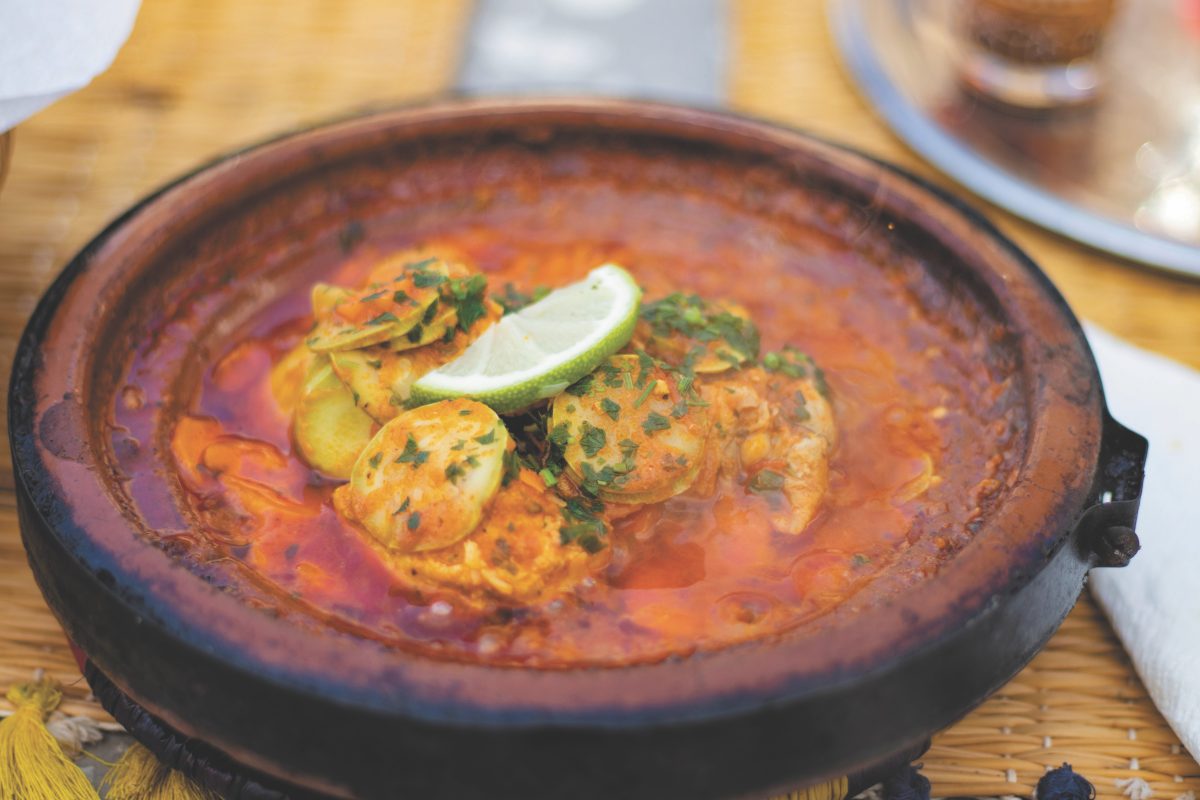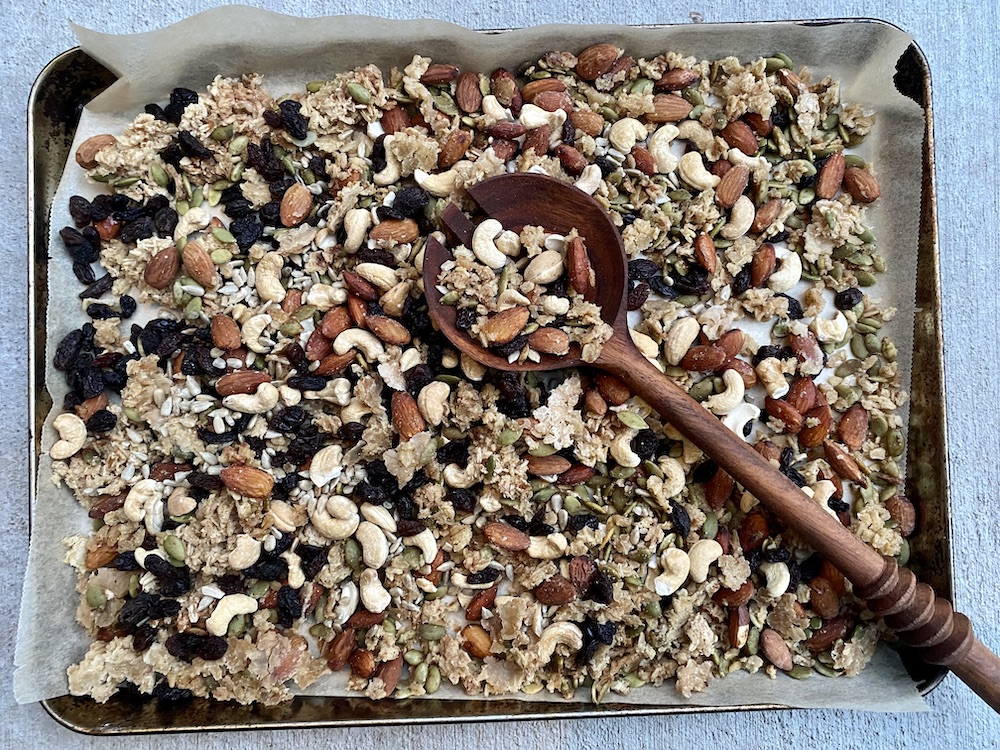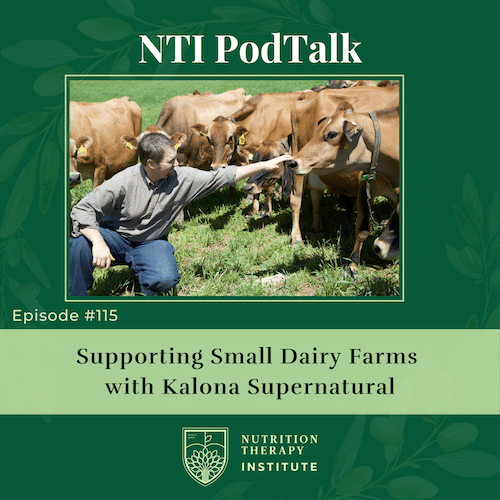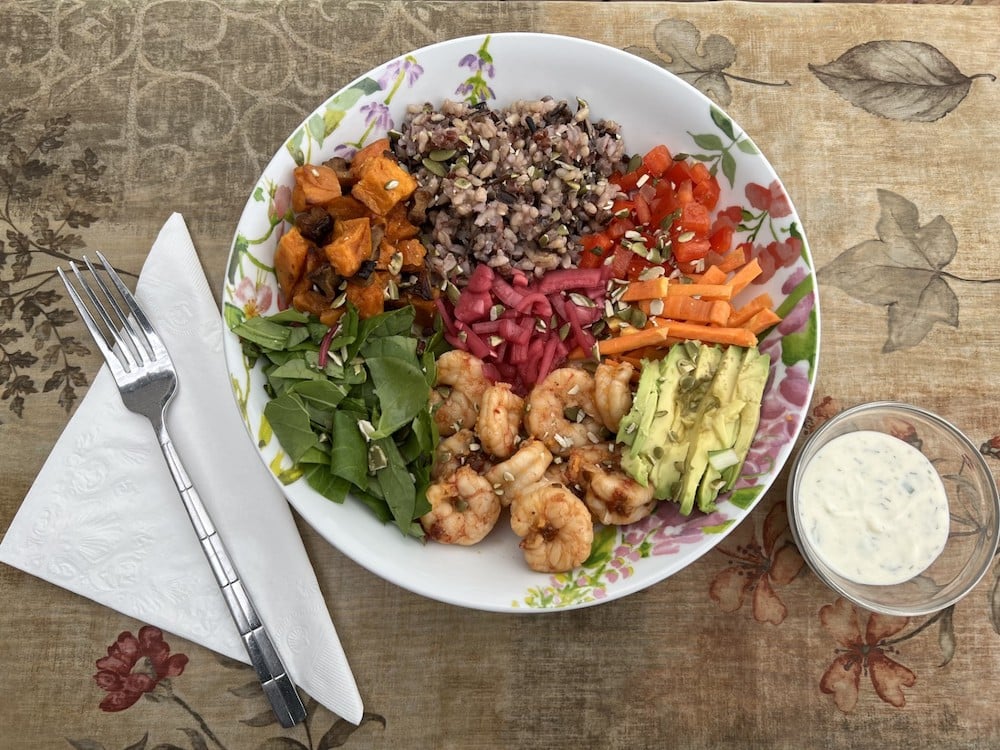
Share this post!
Can you believe it’s that time of year already? The time we hear radio ads urging us to get the flu shot and see signs outside the grocery directing us to the pharmacy? I’m not here to argue the pros and cons of getting a flu shot except to say one thing. The flu shot cannot be your only strategy to avoid falling sick through the winter months. Given that the flu shot has a track record of being only 40% effective, we need to support the body’s immune defenses in additional ways, especially by consuming immune-boosting foods.
Along with good sleep, regular exercise, and drinking plenty of water, the foods we choose to eat can either support or suppress our immune defenses. Studies have shown for decades that sugar decreases white blood cell function. For as many as five hours after eating sugar, our immune cells become less efficient at eliminating germs and bacteria from the body. If sugar has such a profound effect on our immune response, doesn’t it make sense that more nutritious foods would have the opposite effect?
Food most certainly affects our immune response. Our immune cells—including natural killer cells, macrophages, and other white blood cells—need protein, vitamins, and minerals to carry out their jobs. By feeding our bodies immune-boosting foods, we can strengthen our resistance to the pesky germs that cause sniffles, sneezing, coughs, and aching bodies. Make a habit of eating these ten immune-boosting foods to get you through the cold and flu season.
Almonds
Nuts are an excellent source of healthy fats and zinc. The evidence that zinc helps the body fight off viral infections is so strong that many doctors recommend their patients start taking zinc at the first sign of a cold. While most nuts provide similar nutritional benefits, almonds have specifically been shown to help ward off germs. The almond skins might give the biggest immune boost, helping white blood cells fight off viral infections. Blanched almonds have had the skin removed, so be sure you are eating whole almonds.
Blueberries
After studying hundreds of food compounds, researchers found only two that stood out from the crowd for their powerful ability to support the immune response. One of those compounds was pterostilbene from blueberries. Although that study was conducted in a lab, a study in athletes found that eating blueberries every day for six weeks boosted natural killer cell counts (white blood cells that fight off infections) and decreased signs of inflammation. The participants in that study ate 250 grams of blueberries per day, which equates to about 2 ½ cups. You might think of berries as more of a summertime food, but you can eat frozen berries any time of year.
Bone Broth
Chicken soup is a classic home remedy for the flu. Many of its benefits might come from the homemade bone broth. Bones contain amino acids, collagen, gelatin, and many minerals, which seep into the broth when simmered. While no studies have specifically studied the ability of bone broth to prevent colds or the flu, there is evidence that many of its components—including amino acids and zinc—support immune function. Bones can be simmered along with turmeric, garlic, mushrooms, and other vegetables to pack an even stronger immune boost.
Broccoli
One cup of broccoli provides about twice as much vitamin C as an orange. Broccoli also contains a compound called sulforaphane, which is an antioxidant that turns on genes that activate immune cells. Because of its sulforaphane content, researchers at UCLA have said that broccoli might strengthen the immune system better fight off infections as people age.
Curry
Curry is a broad term that refers to the flavorings and sauces that are commonly used in traditional Indian dishes. It contains a combination of spices, but most notably, turmeric. Turmeric and its most active compound, curcumin, have been extensively studied for their immune effects. While most research shows turmeric to have anti-inflammatory and antioxidant effects, some studies also show that it can also have antibacterial, antiviral, and antifungal activity. Warming dishes, seasoned with curry, are perfect for the winter months.
Garlic
Studies show that people who eat garlic on a regular basis have fewer colds and recover more quickly if they do get sick. Garlic contains a compound called alliin. When a garlic clove is crushed or chewed, the alliin turns into allicin, which is the active and immune-boosting component. What does that mean for you? Just don’t swallow the garlic clove whole.
Mushrooms
Mushrooms contain arabinogalactans, which are a type of soluble fiber that boost natural killer cells and immune function. They are also one of the few vegetarian sources of vitamin D, a critical nutrient for immune defense. You can increase the amount of vitamin D in any mushroom by a process called sunning—placing mushrooms in direct sunlight for a couple of days and then allowing them to dry. Although sunning is ideally accomplished during the summer months, you can store dried mushrooms to use in cooking throughout the winter.
Peppers
Bell peppers contain high amounts of vitamin C, with one cup of chopped red bell pepper providing 3 times as much vitamin C as an orange. Vitamin C is an antioxidant that is concentrated in immune cells and becomes depleted by infections and stress. Even though studies have not proven vitamin C to prevent the cold or flu, it does appear that vitamin C reduces the severity and duration of infections when they do occur.
Pumpkin
Pumpkins and other squash are rich in beta-carotene, which is converted in the body into vitamin A. Beta-carotene and vitamin A are essential for healthy immune function, with studies showing people who are deficient in vitamin A are more likely to die from respiratory infections. Pumpkins and other squash are easy to come by during the fall harvest and store well through the winter. They can be cooked and pureed to make soups, smoothies, sauces, and more.
Yogurt
Yogurt and other fermented foods (like kefir, kombucha, and sauerkraut) are excellent sources of beneficial bacteria. Also known as probiotics, these bacteria naturally inhabit the human gut, where they modulate inflammation and the immune response. There are some studies that show yogurt supports healthy immunity and many studies on the immune benefits of probiotics. Be sure to choose organic and plain yogurt to avoid unnecessary sugar, hormones, or pesticides.
Enjoy these immune-boosting foods to help you survive the cold and flu season. Of course, also remember to wash your hands, sneeze into your elbow, and don’t take life too seriously.
Related reading…
5 Immune-boosting Herbs to Use this Winter
About the author: Sarah Cook, ND, is an instructor at the Nutrition Therapy Institute.
About Nutrition Therapy Institute’s Holistic Nutrition Certification
Nutrition Therapy Institute (NTI) is a leader in holistic nutrition education. Since 1999, NTI has provided students with the highest quality in nutrition training. This is accomplished by offering comprehensive holistic nutrition courses online and in-person to help students achieve thriving careers as holistic nutrition therapists in the field of holistic nutrition counseling and wellness. Interested in starting our holistic nutrition courses and earning your holistic nutrition certification? Attend an informational webinar to learn more by signing up HERE.
Image: Image by Thiébaud Faix is free for use by Unsplash
Share this post!


















